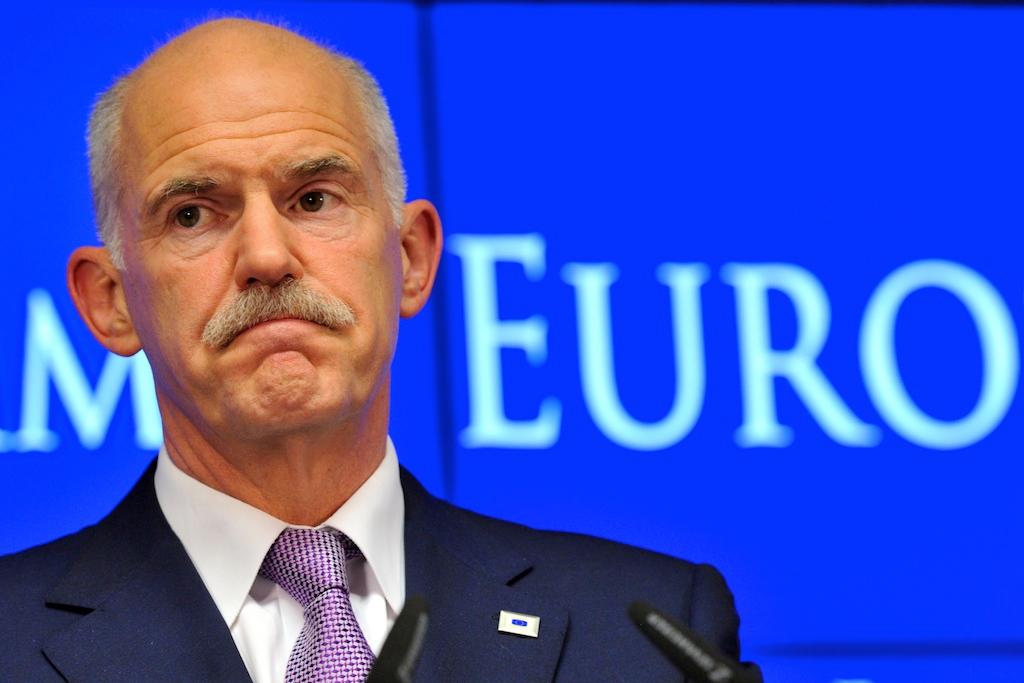Greece: Cabinet backs bailout referendum, PM prepares to face Europe’s anger
Should the Greek Prime Minister George Papandreou resign and the government be dissolved?
The Greek cabinet pledged its support after a seven-hour emergency meeting that ended at 3:00 AM Wednesday, according to the New York Times.
Government spokesman Elias Mossialos said the referendum would take place "as soon as possible," once the basics of the bailout deal had been formulated.
More from GlobalPost: Greek referendum: What should they vote on?
Yet Germany has warned that the rescue plan is not up for negotiation, hours ahead of an emergency meeting at which French and German leaders are expected to tell Papandreou he has no choice but to accept austerity measures.
Papandreou convinced his cabinet ministers the government needed the consent of Greek voters to proceed with the austerity measures demanded by other members of the eurozone, the BBC says.
He argued a referendum would provide:
"a clear mandate and a clear message in and outside Greece on our European course and participation in the euro."
The cabinet's backing makes a stark contrast with the reactions from the opposition and even Papandreou's own party, with six senior members calling for his resignation. One MP from the ruling Pasok party has already quit over the issue, leaving Papandreou with a parliamentary majority of just two seats.
His government faces a no-confidence vote on Friday.
More from GlobalPost: Is Greece ungovernable?
He will also have a difficult task to win over his eurozone partners when he meets them Wednesday evening.
The Greek PM has been summoned for emergency talks on the sidelines of the upcoming G20 summit in Cannes, France. He is due to meet French President Nicolas Sarkozy, German Chancellor Angela Merkel, European Central Bank President Mario Draghi, International Monetary Fund Managing Director Christine Lagarde and EU authorities at around 8:30 PM Wednesday.
More from GlobalPost: Europe reacts to Papandreou bombshell
European leaders have expressed their shock at Papandreou's surprise referendum announcement, and they are likely to tell the Greek leader there is "no alternative to cuts," according to Bloomberg.
Germany's Foreign Minister Guido Westerwelle issued a clear warning Wednesday, reports the BBC:
"[What] we just agreed last week cannot be placed back on the table."
EU leaders had hoped to present a united front at the November 3-4 G20 summit, with the Greek bailout the centerpiece of their strategy to tackle Europe's debt crisis.
But many fear that the Greek public will reject the rescue plan, which requires drastic spending cuts in pensions and public sector wages, if given the opportunity.
More from GlobalPost: Greece erupts as ruling party passes fresh austerity measures
